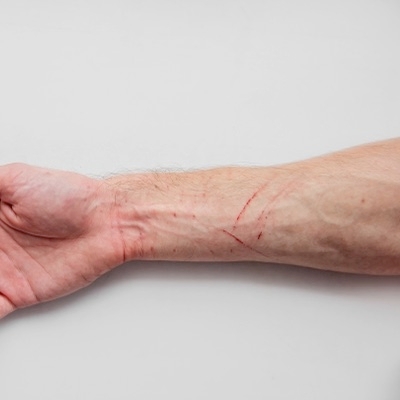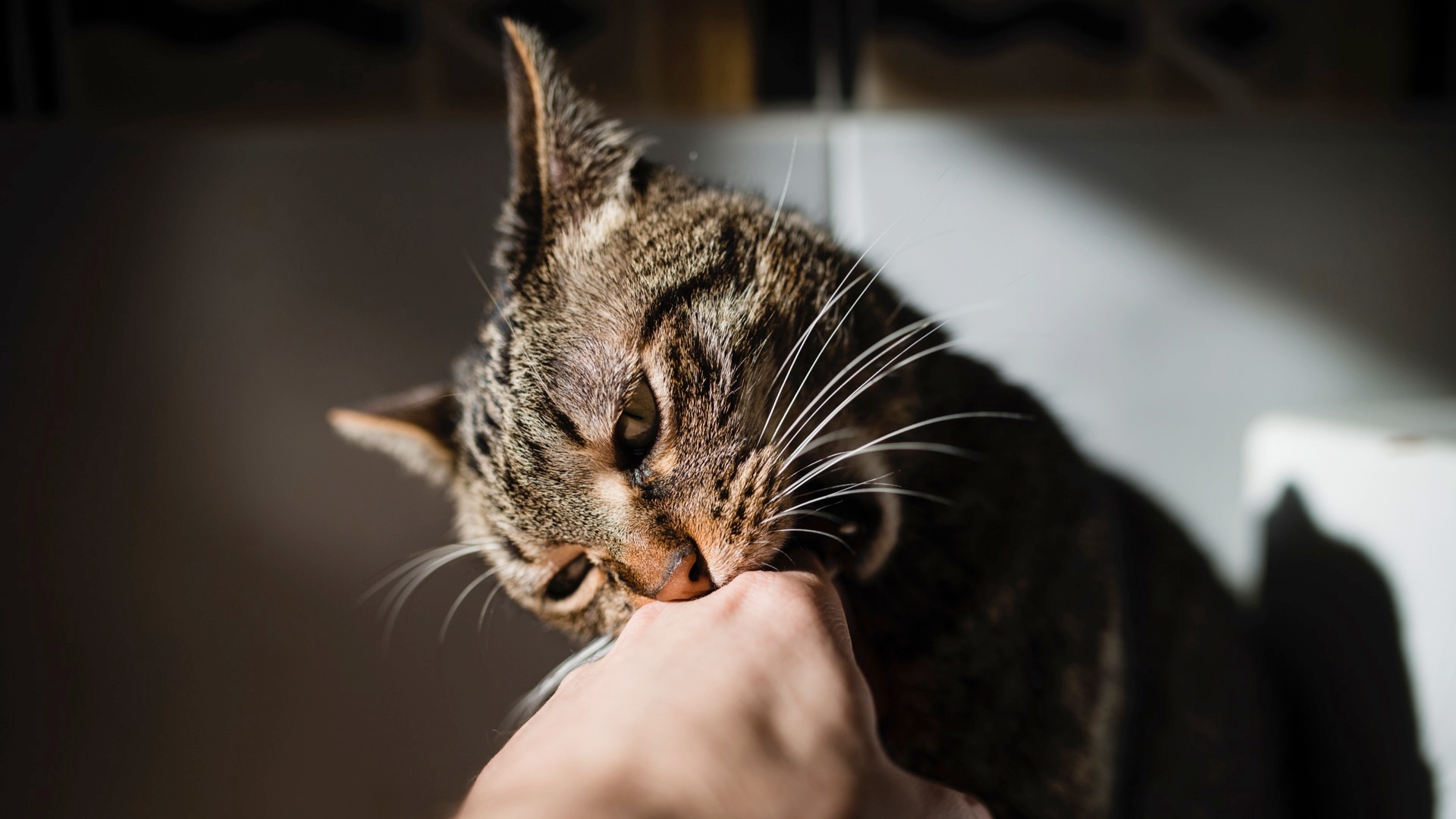Scratching And Biting Cats:
Summary:
A cat who is acting aggressively may be offensively play fighting or she may be defensively protecting herself. How can we know the difference? A cat that attacks, bites, and scratches without warning and does not quit until the human has a fit, is acting offensively. It is acting out predatory play behavior or practicing killing maneuvers on live prey - you!


A cat who is acting aggressively may be offensively play fighting or she may be defensively protecting herself. How can we know the difference?
A cat that attacks, bites, and scratches without warning and does not quit until the human has a fit, is acting offensively. She is acting out predatory play behavior or practicing killing maneuvers on live prey - you! She may act like this because of boredom and inactivity. In other words, she is just releasing pent-up energy. A quiet cat that suddenly explodes into activity, including biting and scratching, is really just playing, albeit a little too roughly.
Some cats can be overexcited, engaging in rough play, by excessive pleasurable stimulation such as continual petting. There is a fine line in a cat's mind between enjoyable petting and irritable handling. When your cat scratches or bites during play, stop petting.
If a cat is acting aggressively in an offensive, play attack, biting mode, try distraction by dragging a catnip mouse or yarn ball tied to a string in front of her. If this does not work, then a quick spritz in the face with water from a water pistol, a loud "NO," or clapping your hands together is usually effective. When she stops the unwanted behavior, give her plenty of praise and a nice food tidbit. If she runs, call her, and when she comes, say, "Good kitty!" and give her a nice food tidbit. It is important always to follow a reprimand with praise.
Provide toys as an outlet for pent-up energy.
A cat that attacks, bites, and scratches without warning and then retreats is, in all likelihood, acting out of fear and therefore defending herself. There are medical reasons for fear defensiveness. For example, if the cat has a hidden wound or a tumor and was then petted, she might react to the pain. Unaltered cats are sometimes more aggressive as are cats in heat or a new mother protecting her litter. Sometimes, a nutritional deficiency or an illness can result in crankiness. If you suspect your cat is acting aggressively in a defensive manner, it would be a good idea for you to get her to a veterinarian. Even something as simple as walking across the rug, reaching down and petting our cat, can cause her to bite or scratch you. You might have unknowingly given her a static electric shock. Some cats have had a traumatic visit with a veterinarian and will develop a fear of men (most veterinarians are male). Consequently, she will attack all men. Cats are creatures of security and comfort, and, if their personal space (bed) is violated, or if they are touched too roughly or touched in a sensitive spot, they will react out of fear with defensive aggression.
If a cat is acting aggressively in a defensive, biting, scratching mode, it is a sure sign that she is acting out of fear. It could be that she was not properly socialized as a kitten. It will take time, but, by arming your guests with a good food tidbit and letting your cat approach, she will learn, in time, not to fear others. If a cat has been abused, she will learn to be defensive. Hitting, chasing, or screaming constitute abuse. Cessation of any form of punishment and consistent praise for good behavior will, in time, re-establish the bond, and the aggressiveness will diminish.


